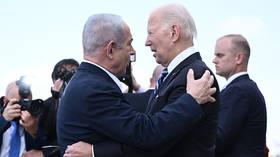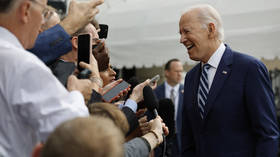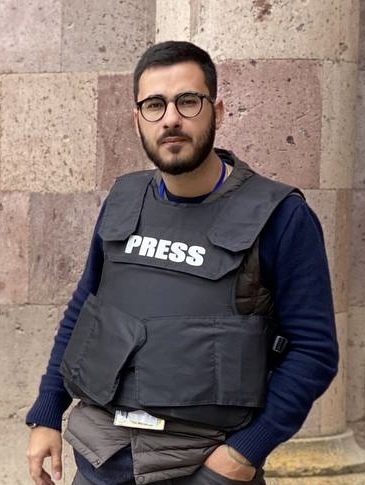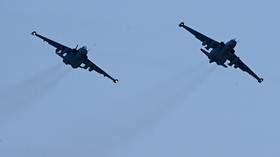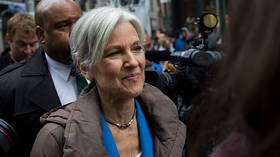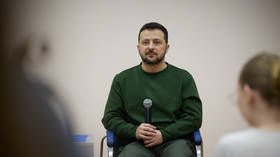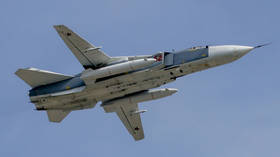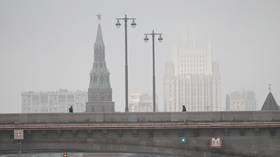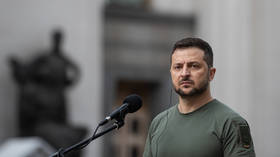‘No one will stop us from destroying Israel and the US’: How Lebanon is preparing for a war over Gaza that it doesn’t want
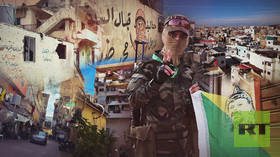
Lebanon has faced many challenges in the past few years. First, there were the civil protests, which in their early days resembled a carnival but soon became an absolute nightmare. Then, the country was hit by a liquidity crisis that led to severe inflation. This was followed by a gigantic explosion in Beirut’s port, armed clashes, and the shooting of Shiite protesters.
As a result, darkness literally descended upon Beirut due to a nationwide blackout brought on by the economic crisis. The electricity issues have still not been solved, and inflation keeps growing.
These problems, however, have receded into the background as the threat of war looms over Lebanon. Neighboring Palestine is being bombed and there is a risk that Lebanon may also ‘catch fire.’ The situation is aggravated by the ideology of the Lebanese armed group Hezbollah, which seeks to liberate Jerusalem. The movement regularly attacks Israeli army positions on the border, which prompts Israel to strike back and attack Lebanon’s southern regions.
No unity
One cannot say that the city of Sidon, located in southern Lebanon, is a more dangerous place than Beirut. Even further south, in Tyre, everything is relatively calm, except that one may hear distant sounds of explosions. Frankly, I thought I would see a more depressing picture. However, after driving through several Lebanese towns, I can say that life there continues peacefully.
“Ninety percent of Lebanese people see no reason to fight against Israel and are not ready for war,” said Lebanese journalist Wafiq al-Hiwari, whom I met through friends in Sidon. This vastly experienced Lebanese man has been covering the political situation in his country for many years and does not like to talk about global politics. Wafiq is a fierce opponent of dividing Lebanon into sections based on religious beliefs. He complains that today, there is no unity in Lebanon – the country is broken into pieces and divided between the Shiites, Sunnis, Druze, and Christians.
— This conflict has already caused us many problems. About 60,000 Lebanese people living on the border with Israel had to leave their homes. About 70% of them came to live with relatives and friends. And this happened in extremely difficult times from an economic point of view.
— And what do you personally think about the situation in Gaza?
— Of course, I condemn Israel. And it hurts me to see innocent people die. But if right now you asked me to take part in a demonstration, for example, I would tell you that I have a sick mother and money problems, and I'd rather take care of my family.
— And most people think like that?
— In general, yes. The crisis has paralyzed Lebanese society. There’s no strength left for either political or social activism. Moreover, religious division also polarizes society. If you ask Christians – for example, members of the Free Patriotic Movement – they will tell you that this situation does not concern them. They’ll say that Hezbollah has started another conflict and poses a threat to the security of Lebanon. If you ask the Druze, they’ll tell you to wait and see how things end. That has been their philosophy throughout history. If you ask the Sunnis, they will say that they are against Israel, but they hate Hezbollah even more and believe that it has conspired with Israel and is plotting against them. And the Shiites will declare that they are the only ones who are ready to fight against Israel and will continue to fight the occupiers until Jerusalem is completely liberated.
In other words, there is no unity in Lebanon either on the Palestinian issue or on any other issue, for that matter.
Deprived of their home
The only people in Lebanon who unequivocally support Gaza are the inhabitants of the Palestinian refugee camps. There are 12 such camps in Lebanon. The largest one is Ain al-Hilweh in the city of Sidon, located in the south of the country. However, the local population associates these camps not so much with Palestine as with poverty and crime.
The Palestinian refugee camps are a unique phenomenon. Lebanese laws do not apply on their territory, and there are no police or military forces to maintain order. De jure, Palestine’s Fatah party, which has concluded an agreement with official Beirut on this matter, is supposed to maintain order in many camps. De facto, however, camps like Ain al-Hilweh are controlled by separate armed groups who fight against each other for the territory and for the right to do business. All the Lebanese authorities could do was construct a wall around the place and guard it along the perimeter.
In other camps, life is a bit more simple. For example, one can freely enter the territory of the Bourj El Barajneh refugee camp in Beirut. Palestinian flags, banners in support of Hamas, and portraits of Palestinian leaders are all over the place. The environment is tense, the people are poor, and there are major problems with electricity. In all the camps, lots of entangled cables stretch along the walls of buildings and cover the houses like a giant spider web.
Approximately 21,000 Palestinians and 12,000 Syrians live in Bourj El Barajneh. The Shatila refugee camp, which is within walking distance of Bourj El Barajneh, is smaller – 20,000 people live there, half of them Palestinians. People complain that Shatila has become a center for drug dealers. The high crime rate is a result of this problem. Most drug buyers are teenagers from Beirut, but sometimes important people come here in search of hard drugs or even weapons. The locals don't like to talk about it, but those with whom I managed to have a word hinted that a lot of people are involved in this criminal business, including the authorities.
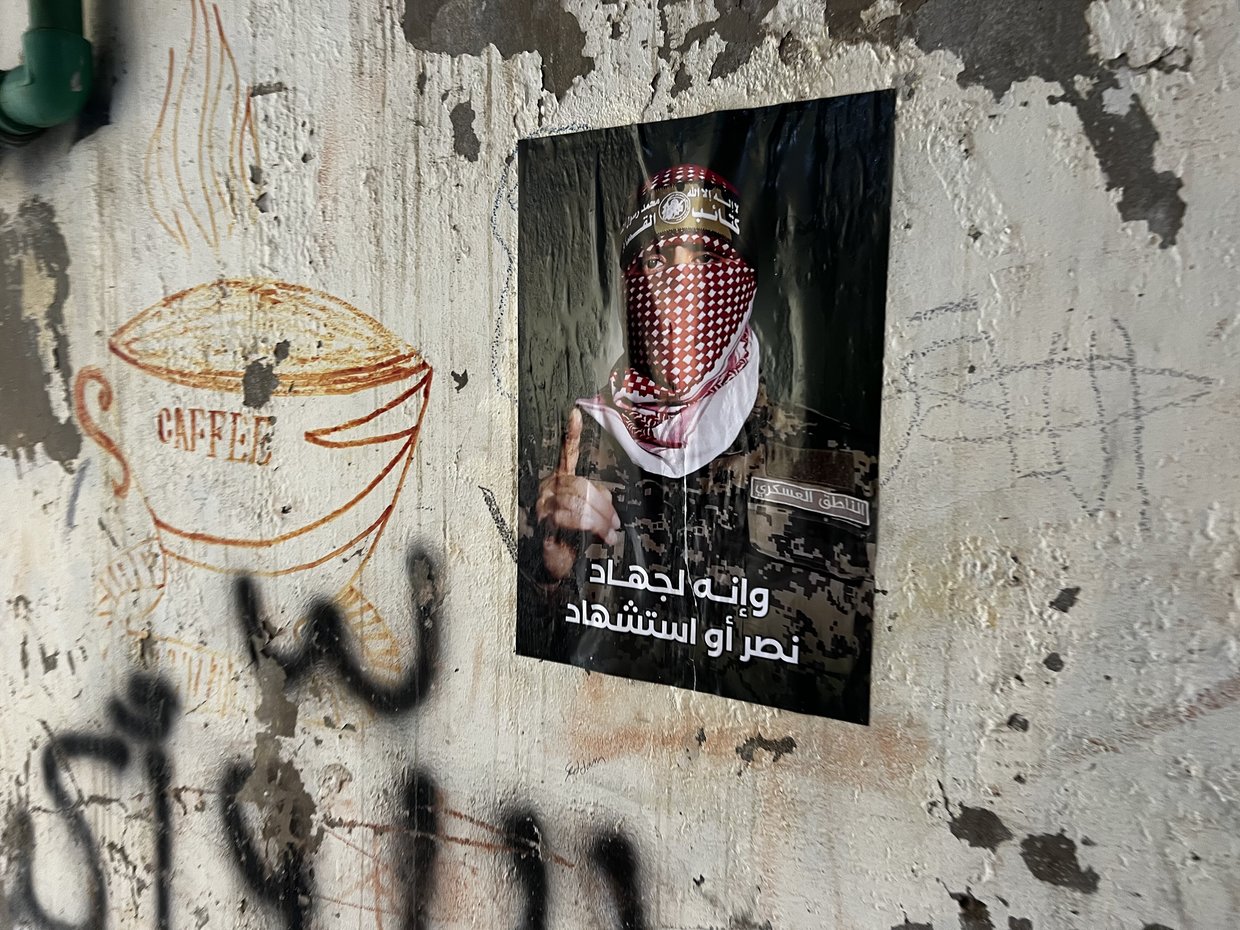
In other aspects, the Palestinian camps are equipped with everything necessary for a normal life – there are stores, cafes, schools, kindergartens, and many medical facilities where the medical services are a lot cheaper than in other parts of Beirut. For this reason, Lebanese citizens often seek medical treatment in the refugee camps. They say that the doctors are sometimes even better than those in Lebanon. Syrian dentists and optometrists are particularly praised.
Judging by the atmosphere inside the Palestinian camps, its residents are definitely more radically-minded than regular Lebanese people. In addition to portraits of Hamas and Islamic Jihad leaders, one may also find images of Hezbollah leaders. The Shiite movement is quite popular here, and for good reason.
The Lebanese resistance is waiting in the wings
A few days ago, the press service of the Israeli Defense Forces (IDF) stated that Israel is ready to build up its military forces and fight Hezbollah. Israel had made similar statements before. For example, Israeli Prime Minister Netanyahu said that if Hezbollah continued striking Israeli territory, Lebanon would suffer the same fate as Gaza.
My sources in Hezbollah said that they consider these threats an attempt to scare Lebanese society so the people would exert pressure on the movement.
Hezbollah has not yet fully engaged in war with Israel. But it has not remained completely passive either. For example, high-ranking Hezbollah officials Hashim Safi Al Din and Sheikh Naim Qassem recently stated that the Resistance in Lebanon will not just sit and silently watch the events in Palestine but will certainly support the residents of Gaza.
Following the statement of Hezbollah’s leader, in which he sharply condemned Israel, the whole world expected sensational news and even believed that a major regional war would break out around November 3. However, the movement made no statements regarding the opening of a second front – a fact that pleased some people and disappointed others.
In short, Hezbollah said that not all military decisions concern the public. Supposedly, the plans are being developed deep ‘underground’ and are kept secret.
“What happens on the Lebanese front will depend on what happens in Gaza,” Hassan Nasrallah said. He added that all scenarios are open, and any particular course of action may be chosen at any time.
“If a regional war breaks out, neither the navy nor the air force will stop us from destroying the military forces of Israel and the United States,” Hezbollah’s secretary-general threatened.
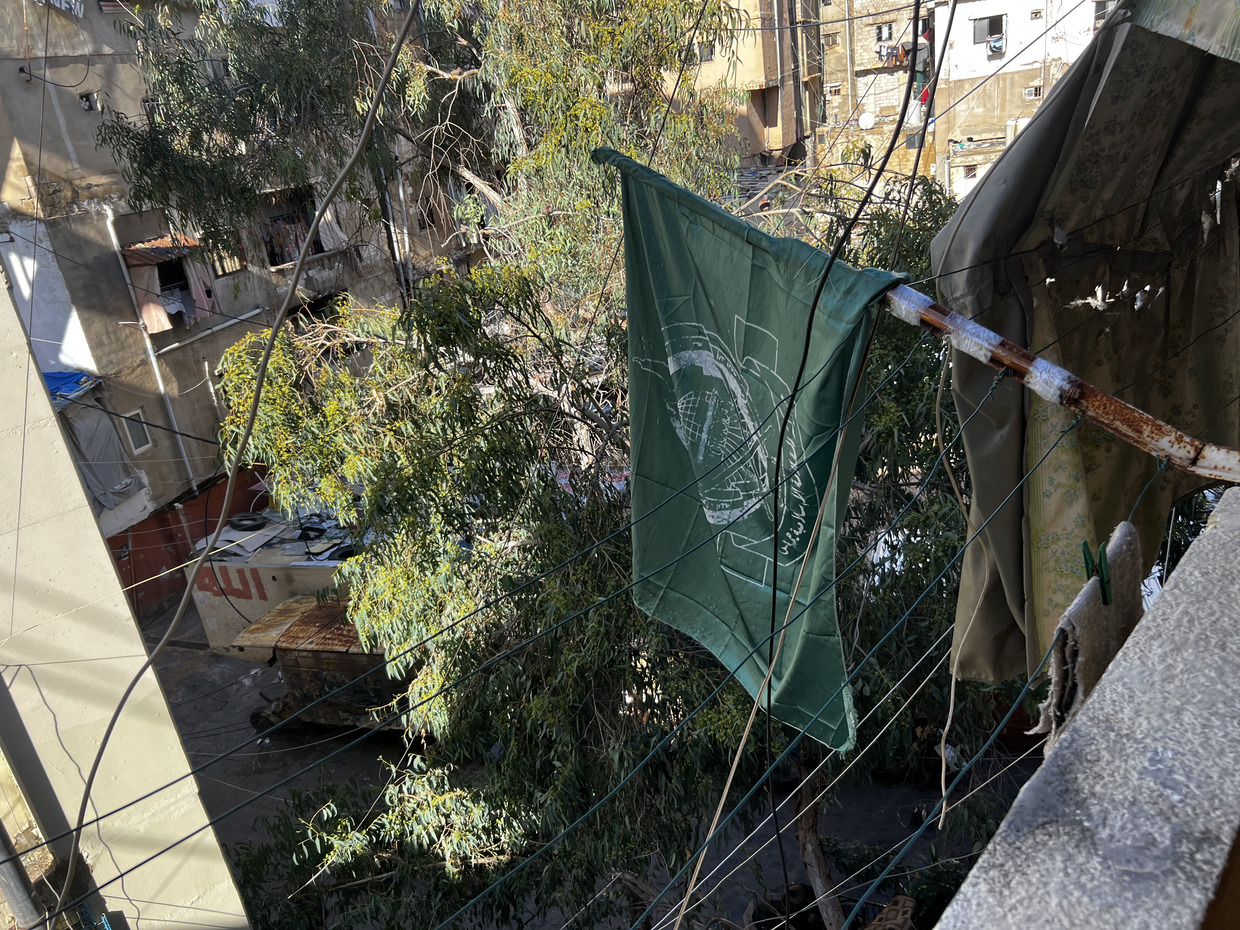
What’s next?
Tensions along the Lebanese-Israeli border remain high. The current situation poses the greatest threat since the time of the 2006 Lebanon War. The Israeli authorities evacuated all citizens living along the border with Lebanon. Many Lebanese people have also been forced to leave their homes. Things are further complicated by the fact that Yemen’s Houthi movement is attacking Israel and has seized ships belonging to Israeli businessmen. Moreover, Iran-oriented Shiite militia groups in Iraq and Syria regularly try to attack US infrastructure in these countries.
The Lebanese experts that I managed to talk to – including political analyst Fadi Budaya, journalist Wafiq al-Hiwari, and many others – are sure that Israel’s Prime Minister Benjamin Netanyahu has dug a hole and fallen into the pit that he made. On the one hand, he cannot remain silent, but on the other, the action only prolongs the conflict and may bring about an unpleasant future for Israel, especially since the military operation in Gaza has already turned many nations against it.
The majority of Lebanese people, however, have more pressing problems to deal with than the Palestinian issue. Despite the ongoing crisis, the country has survived its critical phase – after the disturbing political events of recent years, people have calmed down, and life has started to get better. So today, except for Hezbollah, no one in Lebanon is really willing to fight.
EXCLUSIVE: Stay tuned for an exclusive RT interview with an official representative of the Hezbollah movement
